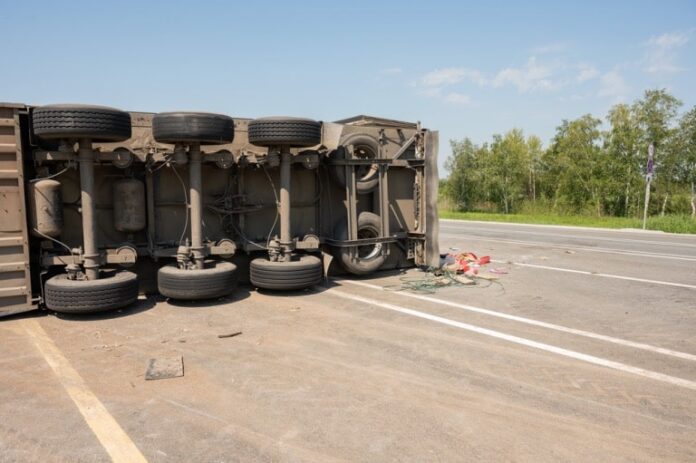Truck accident victims often have to deal with serious injuries, lost wages, and emotional trauma. Punitive damages are meant to punish the wrongdoer for especially bad behavior. Punitive damages are only given when the truck driver or company did something more than just being negligent.
Attorneys experienced in truck accident cases know that some acts by a truck driver or trucking company can lead to punitive damages. These losses are meant to be a financial deterrent, making it clear that careless or malicious behavior will have serious consequences. Let’s talk about four specific acts that can justify punitive damages in truck accident cases.
1. Excessive Speeding or Reckless Driving
Punitive damages can also be given when a truck driver speeds too much or drives carelessly. Given how dangerous their vehicles are, truck drivers are supposed to stick to the speed limits and be careful. But if a driver does careless things like speeding, tailgating, or changing lanes quickly, the risk of a major accident increases dramatically.
- It is very careless for a commercial truck driver to go too fast, especially when the weather is bad, or there is a lot of traffic.
- Courts often see this kind of careless driving as an example of not caring about people’s lives, which is why they can award punitive damages.
- There may be a stronger case for punitive damages if there is proof that the driver had been warned or fined for similar behavior in the past.
2. Driving Under the Influence (DUI)
Driving under the influence is one of the most common reasons why people are awarded punitive damages in truck accident cases. When a truck driver decides to drive while impaired, they are willingly putting other people in great danger.
Because commercial trucks are so big and heavy, any accident caused by a drunk driver can have catastrophic results and even kill people.
- If a truck driver drinks or does drugs before driving, it’s clear that they don’t care about public safety.
- Punitive fines are more likely to be given in DUI cases because the courts often see them as intentional wrongdoing.
- Evidence of past DUI offenses can strengthen the case for punitive damages because it shows a trend of careless behavior.
3. Violation of Federal Trucking Regulations
There are a lot of rules and regulations in the trucking business to make sure everyone on the road is safe. Federal regulations require truck drivers to take breaks, not drive for too long, and keep their vehicles in good shape. When a truck driver or trucking company breaks these rules on purpose, they are often held liable for punitive damages.
- Common violations include ignoring hours-of-service rules, which limit how long a driver can be on the road without rest.
- Manipulating logbooks or electronic records to hide violations is considered intentional misconduct, leading to the potential for punitive damages.
- Truck drivers can also get punitive damages if they don’t do regular maintenance checks and an accident happens that could have been avoided.
4. Texting or Using a Mobile Phone While Driving
Truck accidents are happening more and more often because drivers aren’t paying attention, especially when they’re on their phones. Because taking their eyes off the road for too long can lead to serious accidents, truck drivers are not allowed to text or use personal devices while driving. When a truck driver texts or uses a device, it shows that they don’t care about other people’s safety, which is why they should be punished with money damages.
- The National Highway Traffic Safety Administration (NHTSA) reported an increase in truck accidents linked to distracted driving.
- If the driver was texting or using a device at the time of the accident, phone records can be used as evidence. This makes the case for punitive damages stronger.
- Some courts see driving while distracted as a very bad thing to do, especially if the driver has been warned or punished before for doing something similar.




